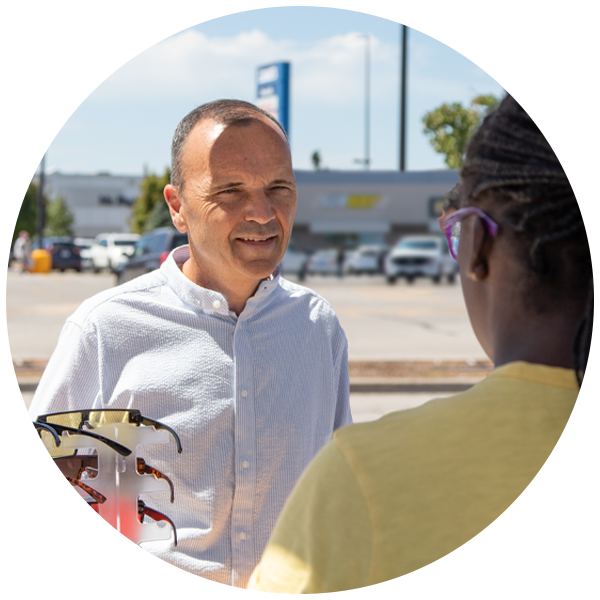Change:
on the streets
where we live
Land Acknowledgement
United Way Greater Toronto humbly acknowledges that it operates on the traditional territory of many Indigenous nations, such as the Wendat, Anishnaabeg, and Haudenosaunee. We recognize and uphold the rights of Indigenous communities, acknowledging the ancestral and unceded territories of the Inuit, Métis and First Nations peoples throughout Turtle Island. Tkaronto is home to a growing community of urban Indigenous peoples, including those from the Inuit, Métis and First Nations. We recognize that the Greater Toronto Area is covered by several treaties, such as Treaty 13 with the Mississaugas of the Credit First Nation and the Williams Treaties with seven First Nations, including the Chippewas of Georgina Island. We respect Indigenous teachings and commit to fulfilling our obligations to the land and one another. Our commitment is grounded in the principles of Truth and Reconciliation and the United Nations Declaration on the Rights of Indigenous Peoples.
Message from Daniele

Where do you live? The quick answer may be Mississauga or Vaughan or Toronto. But the truth is, the place our hearts and minds go when we think about where we actually live is likely a neighbourhood.
It is our home, be it an apartment or house, rented or owned, and so much more. The school our children attend and the place where we worship or volunteer. The corner store where we pick up milk or chapati. The park where we play basketball. The stop where we catch the bus or GO train to work. The hub where we get counselling, take mom for her seniors’ social or learn English.
It's a simple ideal. Yet for far too many, that home, that neighbourhood, is simply unattainable.
We know that because for 67 years, United Way has been supporting people through daily challenges. More recently through a once-in-a-generation pandemic. And since, through the sustained urgent needs and multiple crises—in affordability, housing, mental health and more—that have become emblematic of this post-pandemic malaise.
We have learned how broken so many of the systems we have lived by are. And how for many, particularly those from Indigenous, Black and racialized communities, they never worked at all, but only reinforced barriers to opportunity and those basic building blocks of a good life.
And we’ve come to understand that it is incumbent on all of us not just to care, but to act to fix those systems so that everyone enjoys a fair chance. Because while poverty impacts those experiencing it most, it costs us all: taxing our economy, social and health services; undermining the collective livability of our communities; and eroding our sense of stability, social cohesion, even democracy. That is what is at stake.
We have seen the cracks in our community become crevices. Tragically, hunger and homelessness on the streets where we live have become commonplace. And while we know it is not who we are, it is indeed where we are today. We cannot linger here.
Nor have we.
At United Way Greater Toronto, we are deepening our efforts and evolving our focus to address inequities and build a more just future. We are leaning into the neighbourhoods where we’ve always worked, building on decades of meeting urgent needs. And we are leading local solutions that drive systemic and structural change. At the neighbourhood level. And on a human scale.
Our mission is to make those basics that foster well-being and belonging—safe housing; stable income and employment; local services, recreation and opportunities for engagement—accessible to everyone.
On the streets where we live—wherever we live. All of us.
Always and only,
Daniele Zanotti
President & CEO
United Way Greater Toronto
